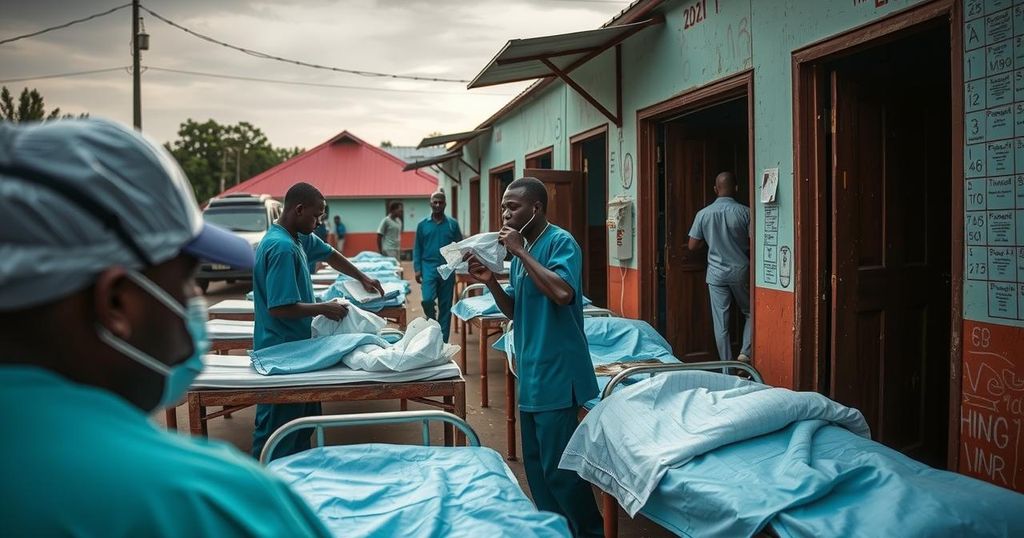Violent clashes in the DR Congo have forced hundreds, mostly women and children, to seek refuge in medical facilities, exacerbating an already dire humanitarian crisis. Médecins Sans Frontières faces substantial logistical challenges as it treats the influx of wounded individuals. Authorities urge compliance with international laws to ensure civilian safety amidst increased military operations.
The situation in the Democratic Republic of Congo (DR Congo) has escalated markedly due to violent clashes between security forces and the March 23 rebels. Hundreds have fled their homes and taken refuge in the Masisi Centre General Hospital as well as the premises of Médecins Sans Frontières (MSF). An alarming number of those displaced are women and children, and the conditions they endure are dire, with overflowing latrines and insufficient humanitarian resources.
Romain Briey, the MSF coordinator in Masisi, highlighted the severity of the refugee crisis, citing the lack of humanitarian actors in the region as a significant obstacle to effective relief efforts. Over the first week of the year alone, MSF and local health facilities have treated more than 77 wounded individuals, further stressing already overstretched medical resources.
Chief medical officer Lucien Kandundao of the Masisi health centre has called upon the conflicting parties to observe international humanitarian laws, aiming to protect unarmed civilians amidst the turmoil. “Fortunately, this respect has been assured to date and we are working to ensure that the neutrality of the hospital is fully respected,” Mr. Kandundao assured.
In a related incident, M23 rebels recently bombed a civilian area in Kitsombiro, resulting in loss of life and property damage, while fighting persists in the Alimbongo forests. The DR Congo government has voiced its intent to reclaim territories controlled by rebel factions, attributing the conflict partly to Rwanda’s alleged support for the M23 group. Government spokesperson Patrick Muyaya stated, “In the coming days, you will witness an increase in the firepower of the FARDC and a progressive recuperation of the occupied territories.”
The Democratic Republic of Congo has experienced prolonged instability due to internal conflicts, often exacerbated by external influences. Currently, clashes involving security forces and rebel factions, particularly the March 23 group, have intensified, leading to significant humanitarian crises. Displacement of civilians, especially among vulnerable populations such as women and children, underscores the urgent need for humanitarian aid and adherence to international law governing armed conflicts. Health facilities, including those supported by Médecins Sans Frontières, are struggling to cope with a growing influx of injured and displaced individuals due to insufficient resources and increasing violence.
In summary, the ongoing violence in DR Congo has led to a humanitarian crisis, particularly impacting vulnerable populations seeking refuge in medical facilities. Overcrowding, limited humanitarian aid, and logistical challenges are intensifying the suffering of those affected. Compliance with international humanitarian laws is crucial to protect civilians during this tumultuous period. As the government pledges to enhance military efforts against rebel threats, the situation remains precarious for countless individuals displaced by conflict.
Original Source: humanglemedia.com






